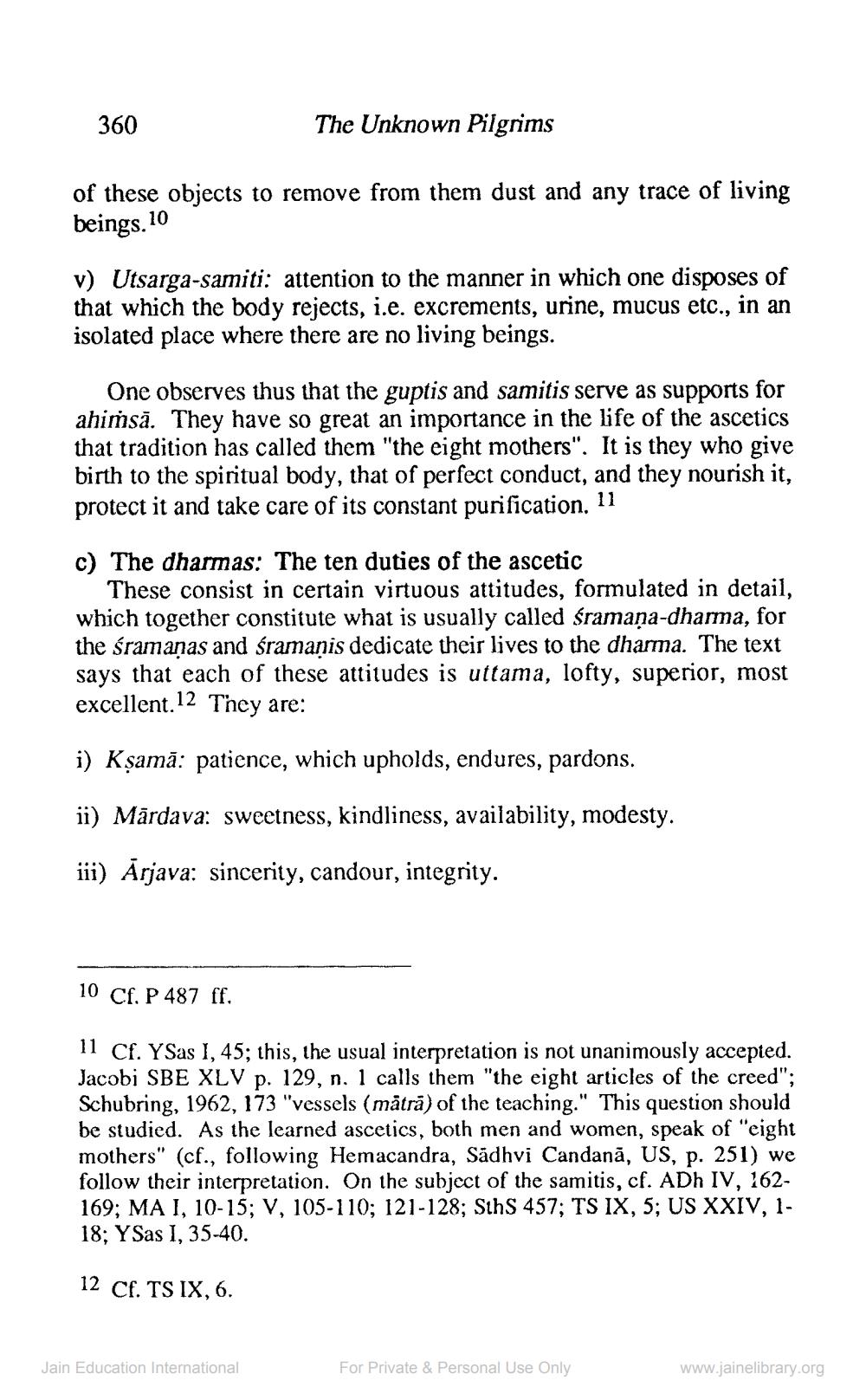________________
360
The Unknown Pilgrims
of these objects to remove from them dust and any trace of living beings. 10
v) Utsarga-samiti: attention to the manner in which one disposes of that which the body rejects, i.e. excrements, urine, mucus etc., in an isolated place where there are no living beings.
One observes thus that the guptis and samitis serve as supports for ahiṁsā. They have so great an importance in the life of the ascetics that tradition has called them "the eight mothers". It is they who give birth to the spiritual body, that of perfect conduct, and they nourish it, protect it and take care of its constant purification. 11
c) The dharmas: The ten duties of the ascetic
These consist in certain virtuous attitudes, formulated in detail, which together constitute what is usually called śramaņa-dharma, for the śramaņas and śramanis dedicate their lives to the dharma. The text says that each of these attitudes is uttama, lofty, superior, most excellent.12 They are:
i) Kșamā: patience, which upholds, endures, pardons.
ii) Mārdava: sweetness, kindliness, availability, modesty.
iii) Ārjava: sincerity, candour, integrity.
10 Cf. P 487 ff.
11 Cf. YSas 1,45; this, the usual interpretation is not unanimously accepted. Jacobi SBE XLV p. 129, n. 1 calls them "the eight articles of the creed"; Schubring, 1962, 173 "vessels (mätrā) of the teaching." This question should be studied. As the learned ascetics, both men and women, speak of weight mothers" (cf., following Hemacandra, Sadhvi Candanā, US, p. 251) we follow their interpretation. On the subject of the samitis, cf. AD IV, 162169; MA I, 10-15; V, 105-110; 121-128; SihS 457; TS IX, 5; US XXIV, 118; YSas 1, 35-40.
12 Cf. TS IX, 6.
Jain Education International
For Private & Personal Use Only
www.jainelibrary.org




